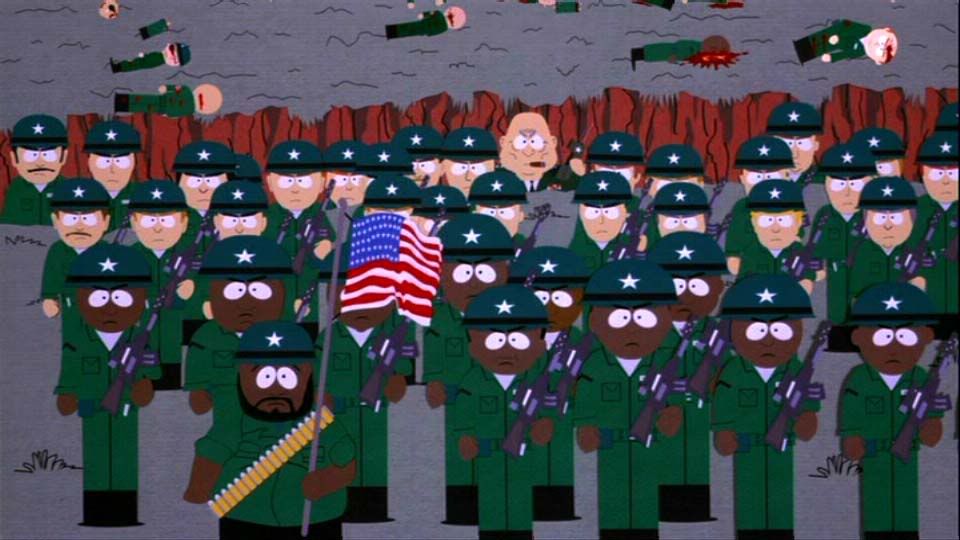Looking back at all the different texts and films we’ve
talked about, I think LTWL 190 might have been one of the most illuminating
classes I’ve taken in a while. Beforehand, my knowledge of the Korean War and
Korean politics, in general, was pretty limited. I basically only knew a few
facts about it and was familiar with certain aspects (like the existence of war
prostitution and transnational adoption), but it wasn’t until taking this
course that I’d ever actually read about the specific circumstances that shaped
the war and “post-war” Korea.
Since my concerns are usually around gender, race, and sexuality—or
pretty much any social issue that affects people directly and forces us to
confront the human cost of institutional power—the most memorable subjects for
me were probably the race and gender politics during the war, in post-Korean
war society, and in the camptowns. The extent to which we discussed the issue
of women being coerced into or just having to resort to sex labor for American GIs was especially eye-opening. As
an extension of that, I am glad we were able to engage with the ways global
politics and American imperialism played a role in this history because, as an
American, it’s something I need to constantly interrogate. But I think
Christine engineered the course in such a way that made it impossible to NOT
talk about the human and sociopolitical aspects of the Korean War, so everything
we discussed seemed to touch upon those issues in some way. Oh, and Memories of My Ghost Brother was my
favorite text. It was a fun but moving read and I’m really glad I got to do my
presentation on it!
I guess, to end off, I just want to say that I’ll be leaving this class with a more well-informed (but complicated) view of North and South Korea, and definitely a greater interest in them. I think learning about the political and social histories of a certain geographical context always helps me understand that history independently, but also on a global scale. It’s a reminder that we are always implicated in these social, political, and historical entanglements (as Americans, usually in really awful ways), so that’s important to understand and engage with, in my opinion.
I also want to say that I really appreciated the way everyone was able to bring their own interests and unique perspectives to the discussion, because it really made class that much more worthwhile. So thanks for enhancing my experience in the class and I hope you are leaving feeling as fulfilled as I am!
I guess, to end off, I just want to say that I’ll be leaving this class with a more well-informed (but complicated) view of North and South Korea, and definitely a greater interest in them. I think learning about the political and social histories of a certain geographical context always helps me understand that history independently, but also on a global scale. It’s a reminder that we are always implicated in these social, political, and historical entanglements (as Americans, usually in really awful ways), so that’s important to understand and engage with, in my opinion.
I also want to say that I really appreciated the way everyone was able to bring their own interests and unique perspectives to the discussion, because it really made class that much more worthwhile. So thanks for enhancing my experience in the class and I hope you are leaving feeling as fulfilled as I am!











